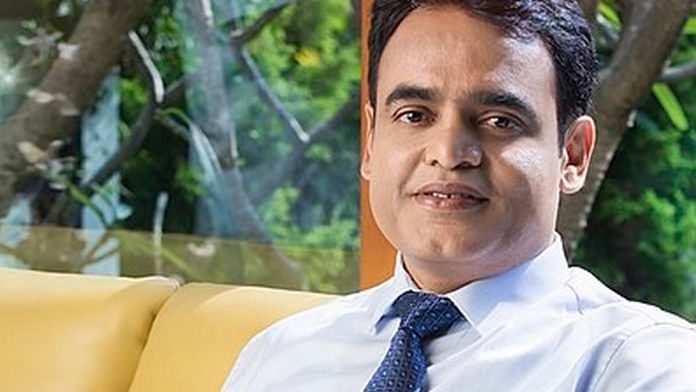Bengaluru: Karnataka’s Higher Education Minister Dr Ashwath Narayan Monday said the National Education Policy (NEP) will transform society while speaking to ThePrint on the day the state became the first to adopt the policy.
The BJP government in Karnataka unveiled the admission module, in line with NEP 2020, which will be implemented from the current academic year (2021-22).
“I feel this national education policy is going to completely transform our entire society and strengthen whatever challenges we have been facing. We can overcome all this through the right education,” Narayan told ThePrint in an interview.
He added that the policy will be the answer to many shortcomings in the education system.
“In brief, the learning system was very rigid, and with this policy, it will be a lot more flexible and student-centric,” the minister said.
The NEP, which was announced in June last year, replaced the National Policy on Education of 1986, and aims to bring about a slew of reforms to school and college education.
According to the new policy, changes in the higher education system include students being given the choice to either pursue three or four-year undergraduate degrees, and higher education institutions being able to offer Masters courses of different designs.
Also read: With facelift for 4 stations on 110-yr-old Karnataka route, railways protects piece of history
About the transition
Earlier this month, however, the management of certain private degree colleges in Karnataka had expressed concern as many of the unaided colleges had completed admissions in the old format and not through the Unified University and College Management System (UUCMS).
The UCCMS is a platform launched by the Karnataka government that will integrate all the academic activities of public universities including admission, affiliation and assessment.
Narayan said that the government had not notified colleges to start the enrollment process before 1 October. “Some institutions were in a hurry, although we are not trying to blame them. But they need to ensure that the student has a choice,” he said.
Another perceived challenge in transitioning to the new system would be, as experts have pointed out, the requirement of adequate resources for implementation.
No separate funds have been allocated in the Centre’s 2021-2022 budget for the implementation of NEP. Karnataka has also not allocated separate funds for the adoption of the policy.
Narayan, however, said “maximum utilisation needs to happen” with existing resources.
“Improvisation, scaling up, increase in quality and investment is for now… The new education policy has already stated that 6 per cent of the GDP should be spent for education,” the minister said. “At present, it is 1.8 per cent and for higher education, it is 0.8 per cent. So we need to scale up and what is available should be made use of as well.”
A digital divide
Through the provision of e-courses, learning apps and satellite-based TV channels, the NEP 2020 is also attempting to boost online education.
The minister though conceded the digital divide between urban and rural areas has to be addressed.
“Along with the telecom network, we are trying to establish a broadband network,” he said. “Each and every house needs to be connected by the network and the devices will be provided to children pursuing education in government institutions.”
Karnataka Chief Minister Basavaraj Bommai Monday said that the state would launch a policy of digitisation and research and development to aid the NEP.
(Edited by Arun Prashanth)
Also read: 1 in 6 people in Karnataka had Covid antibodies before second wave struck, sero survey shows



